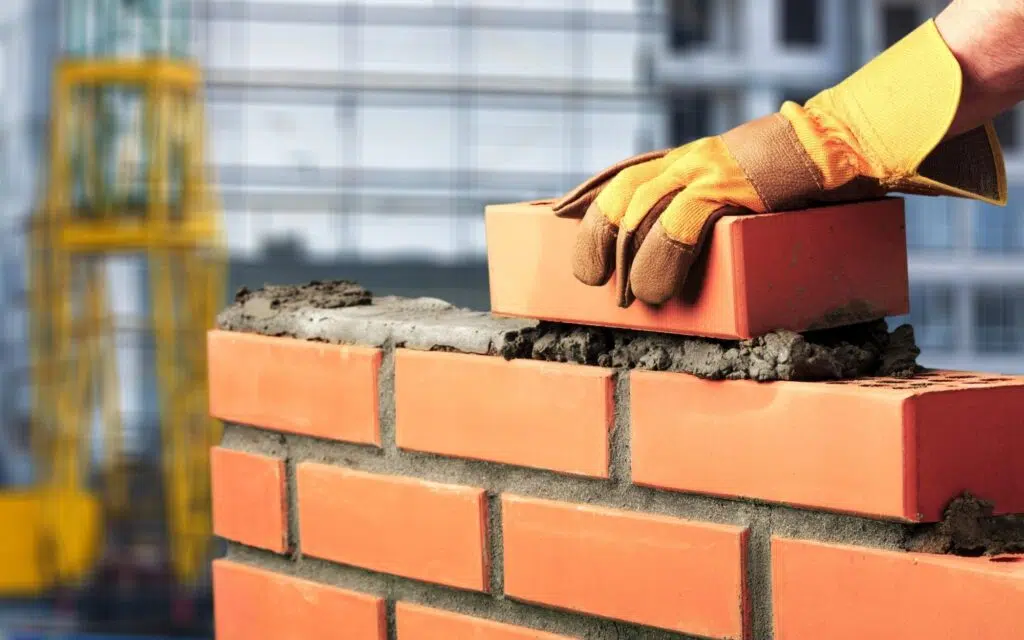What is a Masonry Fence and its Importance for Homes?
Have you ever wondered what is a masonry fence? In simple terms, a masonry fence is a type of fence constructed from individual units such as bricks, stones, or concrete blocks. These units are usually held together by mortar, making them sturdy and long-lasting. This type of fence provides not only aesthetic appeal to your property but also excellent security and privacy. In today’s modern age, where home renovation is highly embraced, understanding the workings of block masonry can truly enhance your renovation projects.
Initially, the term masonry might evoke thoughts of ancient structures and traditional techniques. However, the application of masonry in home renovation extends far beyond those initial impressions. This durable fence type has evolved through time, offering sophisticated design options and support for a variety of styling needs. Having a better grasp of what is masonry not only gives you the upper hand on remodeling choices but also proves indispensable when planning security and privacy measures for homes.

The Historical Significance of Masonry Fences
Some might not realize the rich history behind masonry work. Dating back centuries, masonry has always been regarded as a reliable construction method. From ancient civilizations building emperors’ walls to modern-day architects, masonry has stood the test of time, making it an esteemed construction method in many architectural endeavors. You might think of historical masonry structures like the Great Wall of China or the Roman aqueducts that showcase the impressive longevity and strength of masonry.
Materials Used in Masonry Fences
Bricks
One of the most commonly used materials in masonry fences is bricks. Not only are bricks widely accessible, but they also add a classic touch to any property. They come in various colors and textures, allowing flexibility in design while maintaining durability.
Concrete Blocks
Concrete blocks, made from cast concrete, offer various design possibilities due to their adaptability in size and shape. Often used for strong foundations, concrete blocks are favored for their compressive strength and cost-effectiveness.
Stones
For homeowners seeking a unique flair, stones are an excellent choice. Whether you’re interested in limestone, granite, or fieldstone, stone offers an exceptional natural look which enhances both its strength and beauty. Stones, being part of the natural landscape, harmonizes effortlessly with outdoor settings, adding richness and texture to the fence.
Benefits of Masonry Fences for Homeowners
Why consider installing a masonry fence? The advantages are countless. Firstly, these fences are durable and sturdy, often withstanding adverse weather conditions better than other types of fences. Secondly, they require little to no maintenancesay goodbye to constant repairs or repainting! Lastly, masonry fences are incredibly versatile in terms of design and aesthetics, enabling property owners to personalize their space while sticking to their preferred style.
Masonry Fences and Aesthetic Appeal
A well-crafted fence can transform the look of your property entirely. If you’re seeking to enhance your home’s curb appeal, a masonry fence can perfectly complement your home’s exterior. Whether its a polished brick fence or a rustic stone enclosed garden, the customization possibilities are endless. Having guidance on masonry installation can further aid in reaching your architectural vision.
Environmental Considerations of Masonry Fences
In this era of environmental sustainability, many property owners are considering the ecological impact of construction materials. The non-toxic nature of masonry materials is incredibly advantageous. By utilizing recyclable and locally sourced materials like stone or brick, masonry fences significantly reduce the environmental footprint, making them a green option for eco-conscious homeowners.
Security Aspects of Masonry Fences
Your home’s security is of utmost priority. A masonry fence acts as a formidable barrier to potential intruders. Its robust structure is more difficult to breach than wooden or metal alternatives, offering property owners peace of mind regarding their family’s protection.
How to Maintain a Masonry Fence
While masonry fences are generally low maintenance, occasional cleaning can help preserve their appearance. Regular inspections ensure no cracked mortar or dislodged stones that would need prompt professional attention. For masonry cleaning tips, refer to our detailed guide on cleaning masonry.
Costs Involved in Masonry Fences
The costs associated with masonry fences can vary, dependent on factors such as size, material choices, and complexity of the design. Generally, while the upfront cost might be higher when compared to other materials, their longevity, durability, and reduced maintenance costs make them a cost-effective solution in the long term.
Role of Masonry Contractors
Employing skilled masonry contractors brings many benefits. They ensure correct mixing, application of mortar, and handling of materials, providing a sturdy and aesthetically pleasing final product. Understanding a contractors role in home renovations might give you assurance in attaining a top-notch project result, as depicted by experts in this detailed article on masonry contractors.
Choosing the Right Masonry Fence for Your Property
When selecting a fence style, consider local climatic conditions, the architectural style of your home, and personal design preferences. Its essential to choose a design that not only fits the environmental surroundings but also complements your home.
How to Install a Masonry Fence
While installing a masonry fence could be a DIY project, consulting with a professional ensures an error-free installation. A typical fence installation includes designing a layout, digging and laying a foundation, and then stacking and binding materials with mortar in courses. Its usually wise to refer to expert instructions for accurate steps during installation.
FAQ
What makes masonry fences durable?
Masonry fences are made from sturdy materials like bricks, concrete, and stone that inherently offer long-lasting endurance. Their ability to withstand harsh weather conditions makes them a favored choice.
Are masonry fences environmentally friendly?
Yes, they are. Many of the materials used in masonry construction are natural, biodegradable, and can be sourced locally, resulting in a lower environmental footprint compared to synthetic alternatives.
Can I install a masonry fence myself?
While its possible to undertake this as a DIY project, involving a professional ensures a smooth and proper installation process. Expert guidance can lead to a more precise and visually appealing fence.

Conclusion
The facade of a well-built masonry fence serves as a statement piece for homes. Its robust, durable, and aesthetic charm makes it a favorable option for many homeowners. With masonry, you are not just investing in a fence, but in the long-lasting security and elegance of your home.
This article contains affiliate links. We may earn a commission at no extra cost to you.
